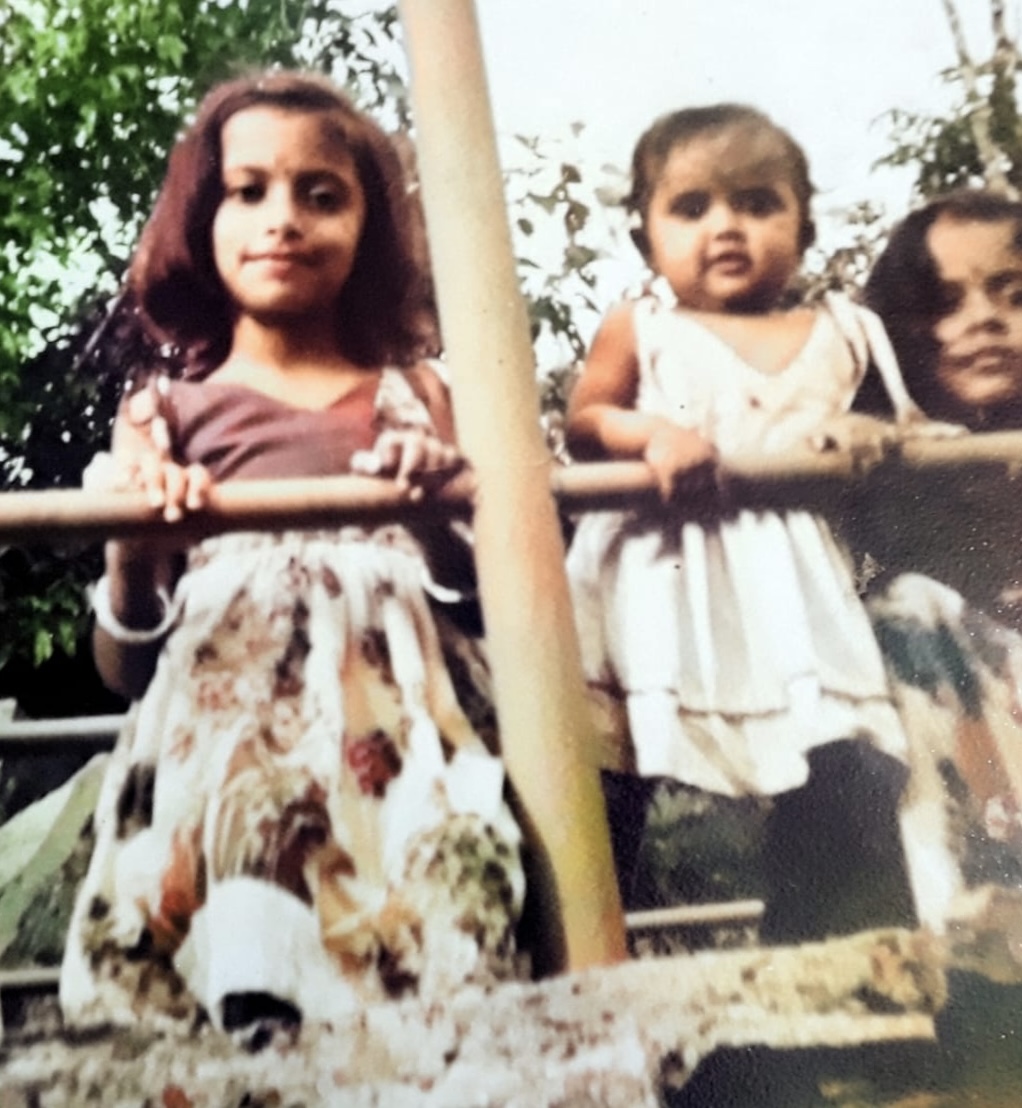In India, rituals that surround the passing of parents are conducted by sons, without the presence of their daughters. For this reason, people often ask “If you don’t have a son, who is going to do all of that for you?” This question persisted through my mother’s childhood.
My mother grew up in Bangalore, a city in southern India, in the 1980’s. For nearly her whole childhood, she shared every experience with her younger sisters, Pallu and Shruthi. Though they were nearly inseparable, each sister was so different. Pallu, the fashionista she still is today, “meticulously chose her clothes, bindi, and jewelry the night before” while my mother would wear whatever she saw first. Naturally, the two babied Shruthi, the youngest, sharing their friends with her and including her in their activities. Above all, the sisters collectively prioritized their education, something they could always rely on in a fast-paced world.
The things they weren’t taught in school, they learned at home. Growing up without brothers, my mother recalls the feeling of pity surrounding their parents. “People used to give us that look, as if we were all a burden”.
What was it like growing up alongside your sisters?
Once, in the back of our home, water started leaking in during a heavy rainfall and my sisters and I grabbed candles, matches, towels, and sealed up the doors quickly. We had learned all this from our father. We huddled together and felt proud of ourselves. We weren’t even scared, and we were so smart. During our summers, we had the option of either going to our cousin’s house in the village, or staying at home in the city. Sometimes we split up, not wanting to spend that much time together. Other times we would rent DVDs and watch horror movies, and everyone would get scared and huddle together later that night while sleeping.
How would you describe the bond amongst your sisters?
One day the three of us got on a bus. While we sat, a lady came and told us to move Shruthi from the seat, saying she could easily sit on my lap. Pallu refused and stood her ground. The conductor even came and tried to get us to listen to the lady. They thought, since we were girls, we wouldn’t refuse. Pallu fought for her, saying “That’s my sister, and she’s little, and I cannot put her in my lap because I’m little, too”. The people around us spoke about how adamant Pallu was, admiring the way we stuck together.
To the sisters, their lives were full of everything they wanted. In each other, they found love, friendship, and adventure. However, nobody else saw their circumstances through that lens. Sons inherited the most land and brought pride to their family. The lack of one’s presence in my mother’s family appeared to others like a gaping hole, a misfortune incapable of overcoming.
Were your parents affected by the pity people took on them?
I’m sure my mother cared, since so many people said it to her face, but they never felt at a loss because of it. They took care of themselves, and we took care of ourselves. We were always academically independent, and supported ourselves when they had work. Our parents gave us freedom. They never asked who we were going out with or anything like that. They had trust in us.
My mother’s parents often stopped by markets on their way home to pick up fish, pastries, or snacks for the sisters. They raised them with the same care and treatment as is expected when raising a son, rooting for their success throughout.
Have you ever felt like you missed out on having a brother?
Nope. The boys in other families didn’t add any value we couldn’t. For us, that thought process never came. People still hope for sons to guide their sisters, but we didn’t need a brother to come and protect us. We had ourselves. We felt very happy, and we never felt like we needed a boy in the house. Regardless of how sorry others felt for us, we knew that we didn’t need that pity. We were just fine on our own.

